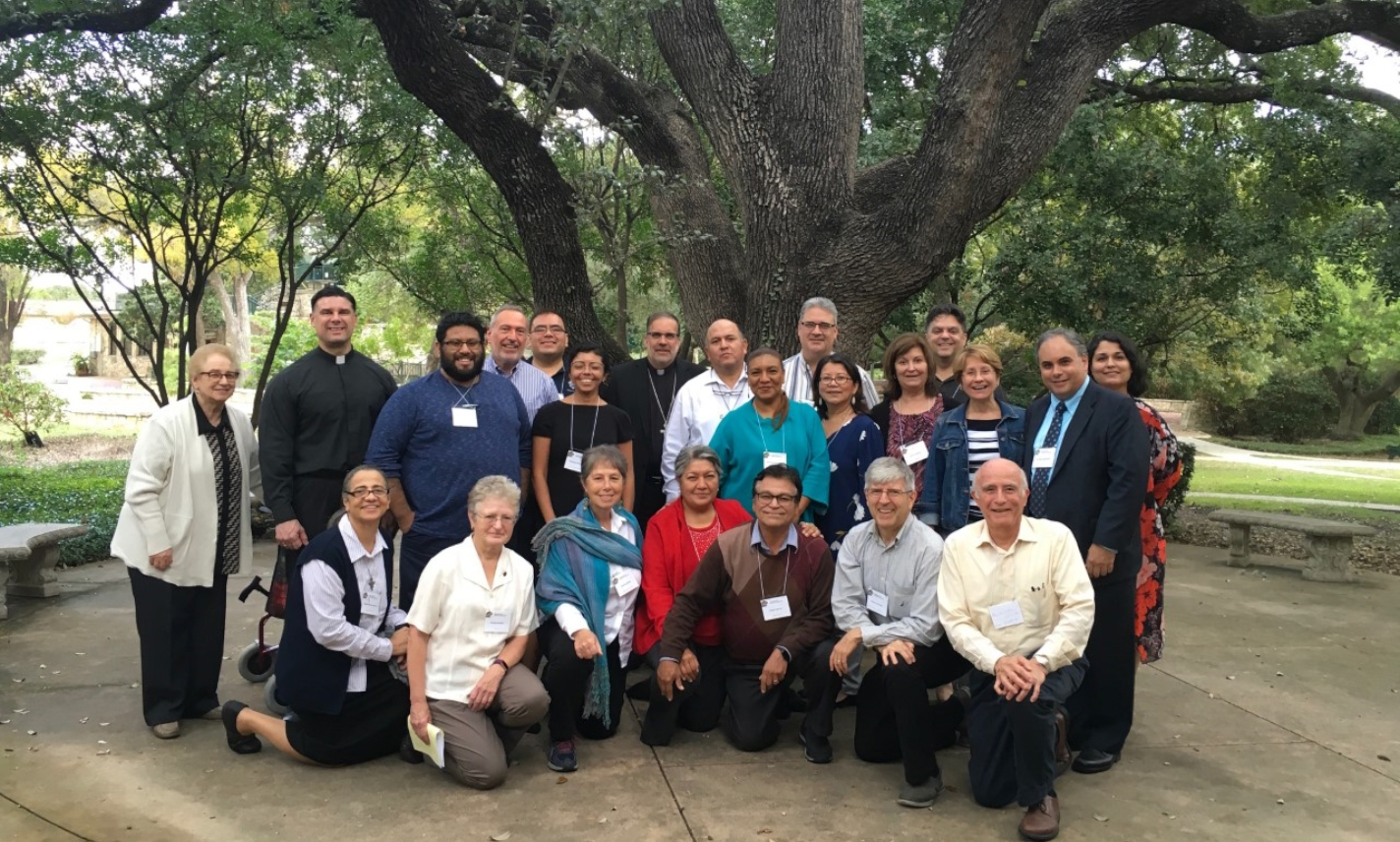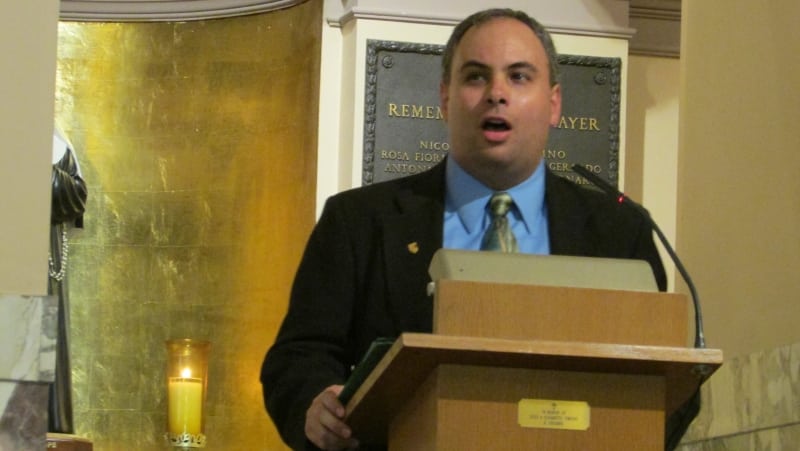On September 15, 2021 the U.S. Conference of Catholic Bishops (USCCB) Subcommittee on Certification for Ecclesial Ministry and Service approved competencies for minister formation and certification for Catholic pastoral care in hospital chaplaincy and related health care ministries, for Catholic veterans’ chaplaincy and pastoral care, and for prison chaplaincy and ministries. In my role as Director of Certification for Ecclesial Ministry at the USCCB, I consulted with colleagues from the National Association of Catholic Chaplains (NACC) in their efforts to ensure that previously existing competencies in these areas were properly updated and new competencies developed to address the need for well-prepared lay ministry leaders and clergy in these important areas of ministerial care provided by the Catholic Church. In addition to resourcing professional chaplaincy, NACC has worked extensively with a consulting body – the Partners in Pastoral Care – to develop pastoral care competencies addressing a wide range of health care settings and minister needs. They have also collaborated closely with the Catholic Prison Ministries Coalition (CPMC) in the development of formational programs built around the newly approved prison ministries competencies. Finally, NACC also worked closely with the National Association of Veterans Affairs Catholic Chaplains (NCVACC) in the incorporation of their veterans’ chaplaincy standards into NACC’s certification processes. NACC has an over 55-year relationship with the USCCB, most recently expressed in the work on these competencies developed in consultation with these collaborating entities, and my office, representing the USCCB subcommittee for a period of five years. NACC also boasts strong relationships with several other Christian denominational chaplaincy bodies, as well as interfaith chaplaincy organizations.
Below is the text of a media release (en español aqui) from the USCCB on the subcommittee’s approval of these prison ministries competencies and a button with a link to the competencies and procedures on the NACC website.
September 24, 2021The U.S. Conference of Catholic Bishops’ (USCCB) Subcommittee on Certification for Ecclesial Ministry and Service has had a lengthy collaboration over the years with the National Association of Catholic Chaplains (NACC). The most recent fruit of their work has been the update of certification competencies for use by Catholic chaplains. The subcommittee met on September 15 and approved the recently-updated certification competencies developed by NACC for chaplains ministering in health care settings and veteran affairs, as well as new certification competencies for prisons chaplains. The subcommittee granted its approval of the competencies for a period of seven years.
“Catholic chaplains and pastoral care ministers have been essential providers of spiritual and sacramental care in hospitals and other health care facilities for decades,” said Bishop Gerald F. Kicanas, bishop emeritus of Tucson, chairman of the USCCB’s Subcommittee on Certification for Ecclesial Ministry and Service. He especially noted their ministry to the critically ill over the past two years: “In the midst of the COVID-19 pandemic, and also in response to the spiritual pandemics of racism and social trauma which have accompanied it, ordained, lay and religious chaplains have been ‘spiritual first-responders,’ assuming the same risks of illness as the medical professionals with whom they collaborate. When physically isolated from loved ones suffering and dying alone, chaplains have been there to assist families with virtual visits and agonizing decisions about medical care.”
Bishop Kicanas further highlighted that these ministers have convened families to process the loss of loved ones and to provide innovative forms of common prayer when funeral liturgies could not be celebrated. “When medical staff have been fatigued and demoralized, our pastoral care providers – priests, deacons, sisters and lay women and men – have offered listening hearts and gentle guidance. NACC’s board-certified chaplains and pastoral care ministers remain a vital gift of the Church’s care for the most vulnerable among us,” he said.
Bishop Donald J. Hying of Madison, the USCCB’s episcopal liaison to the NACC, indicated how the approval of the updated certification competencies enhances and affirms the formation which board-certified Catholic chaplains receive. “The bishops of the United States can take great pride and have a strong confidence in the mission and performance of the NACC. The organization prepares and certifies chaplains and pastoral care ministers who provide to Catholics, other Christians and even those of other faiths, the Church’s compassionate care and support.”
The USCCB subcommittee approved updated and new competencies submitted by the organization which will be used to certify the following ministerial roles:
- Board-Certified Catholic Chaplain
- Board-Certified Catholic Chaplain for Veterans Affairs
- Certified Associate Catholic Chaplain
- Catholic Correctional Chaplain, in association with the Catholic Prison Ministries Coalition
The USCCB subcommittee also approved Diocesan Pastoral Care Competencies for the Sick, the Homebound and Older Adults (availablehere in English and Spanish), the NACC Code of Professional Ethics, and Ethics Procedure Manual. Additionally, the subcommittee reviewed and noted the value of the Palliative Care and Hospice Advanced Certification for qualified Board-Certified Catholic Chaplains.
The approved formation materials and certification competencies are based upon the four dimensions of comprehensive formation for lay ecclesial ministers presented in the 2005 USCCB resource,Co-Workers in the Vineyard of the Lord, and they include specialized competencies unique to pastoral care in health care, veteran and prison ministries.
The approval of NACC’s certification competencies builds upon a half-century relationship between the USCCB and the NACC. The association has long been considered a model for other Catholic Church associations and organizations which have looked for guidance in the development of ministry education and training programs, the writing of standards and certification processes, and a model of collaboration with other organizations. Originally formed in 1965 from the USCCB-predecessor body, the National Catholic Welfare Conference, NACC also has long-standing collaborative relationships with a broad range of ecumenical and interfaith chaplaincy and spiritual care partners: ACPE: The Standard for Spiritual Care & Education, the Association of Professional Chaplains, Neshama: Association of Jewish Chaplains, the Canadian Association of Spiritual Care, the American Correctional Chaplains Association, the National Association of Veterans Affairs Chaplains and the National Conference of Veterans Affairs Catholic Chaplains. For additional information about NACC, visit https://nacc.org.
The USCCB’s Subcommittee on Certification for Ecclesial Ministry and Service assists the bishops in reviewing and approving certification standards and procedures to be used on a voluntary basis by arch/dioceses and national organizations in the certification of specialized ecclesial ministers. It also offers consultative services aimed at improving the quality of lay ministry formation programs that are sponsored by arch/dioceses and by academic institutions. For more information visit https://www.usccb.org/certification.



 Request Dr. DelMonico's professional services for a liturgical, ministerial or leadership consultation, or for an academic or public presentation.
Request Dr. DelMonico's professional services for a liturgical, ministerial or leadership consultation, or for an academic or public presentation.